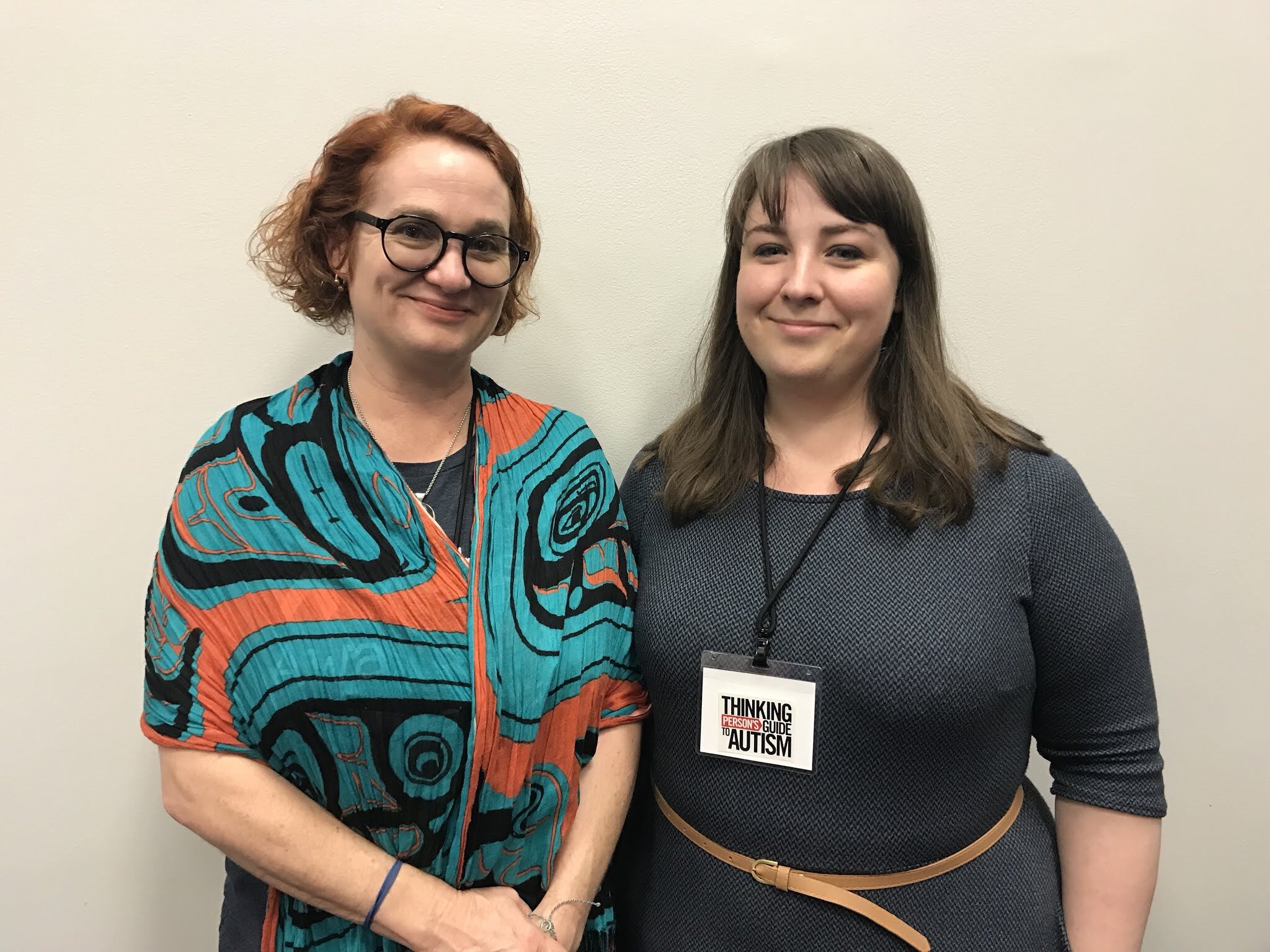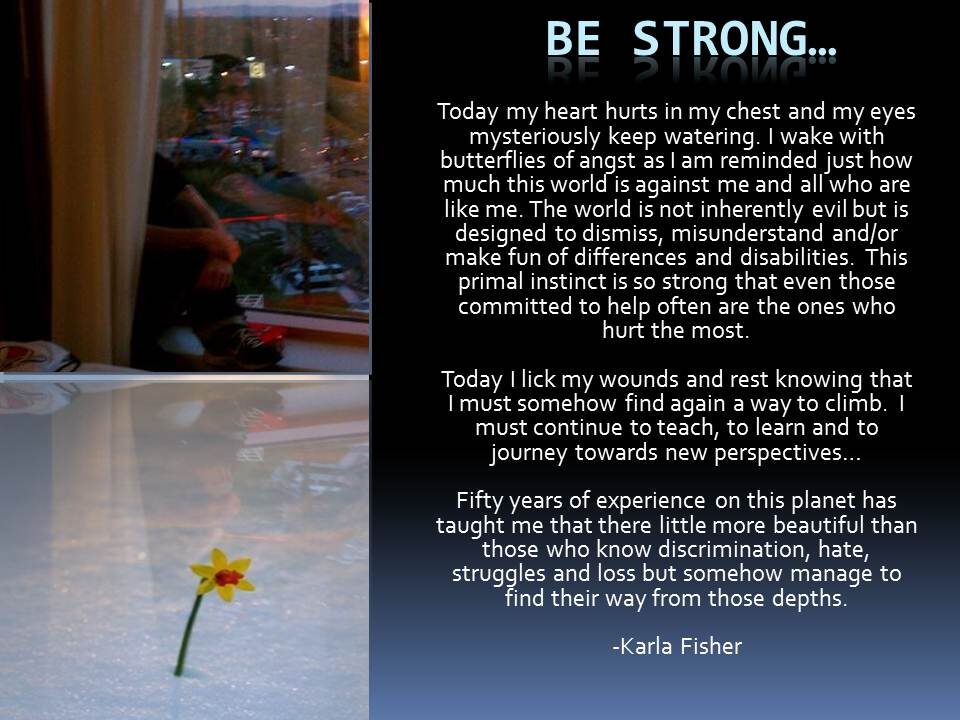Dr. Catherine Crompton is doing ground-breaking research on autistic social dynamics and communication, so we were thrilled to interview Dr. Crompton about her work on Information Transfer between Autistic and Neurotypical People during INSAR 2019. We were fascinated (and gratified) to learn about her findings that when there are communication disconnects between the two groups, it tends to be a mutual hiccup rather than an autistic-specific problem. Shannon Rosa of Thinking Person’s Guide to Autism (TPGA): I’m speaking with Dr. Catherine Crompton from the University of Edinburgh. Catherine is working on a project that examines whether performance on cultural transmission tasks varies, depending on the diagnostic status of the social partner, which basically, if you want to summarize that in layman’s terms? Dr. Crompton: It means that we’re looking at how autistic people interact with other people, whether that is different, depending on whether the person they’re interacting with is also…
Tag: neurotypical
Paula Durbin-Westby is an Autistic advocate and an autism parent. She and her son recently appeared in the PBS P.O.V. documentary Neurotypical, a film meant to challenge public perceptions of Autistic people as well as allow Autistics to represent themselves. Paula’s portrayal in the final version of the film, however, was not at all what she was expecting. We talked with her about the distress of being publicly misrepresented as an Autistic, as well as her recommendations for filmmakers and other media types hoping to accurately portray Autistic experiences. What was your goal in agreeing to be interviewed for Neurotypical? My point was to counter pernicious media assertions that Autistics (and other people with neurobiological disabilities) are incapable of parenting and relationships. Unfortunately, I think the film’s portrayal of me has actually reinforced some of those assertions. I don’t have any problem with being shown as disabled, or as Autistic.…
Emily Willingham emilywillinghamphd.com We want April — Autism Acceptance Month — to matter, to help further acceptance and understanding of autistic experiences, happiness, and rights for autistic people of all ages and abilities. We will be publishing Autism Acceptance posts and pictures all month long. -TPGA Editors What does it mean to be neurotypical or not? Someone told me via email that I seem to be “demand(ing) all the trappings of neurotypical privilege” in public while saying that I’m not neurotypical, and I’m wondering about many aspects of it. First, I’ll establish that I am what I say I am. That means that I’m a scientist, writer, editor, mother, life partner, and friend. There are adjectives to describe me, as well, but that’s a longer list, and I’ll avoid both the embarrassment and the indulgence. What I do know is that I’ve spent a lifetime being anything but neurotypical (I’m…
….if you want them to have high self-esteem or learn about autism. Karla Fisher Karla’s ASD Page This past week has been nothing short of amazing in the world of cognitive dissonance. At work, I was honored by being offered a key position in a critical program at one of the largest high tech companies in the world. I had worn my favorite black hoodie to my job interview. On the day I received my official offer letter, I received handshakes, congratulations, and assurance from my boss and other leaders that this is a great honor and opportunity. I rest knowing that I am amongst the top in the world at the work that I do, and brace to continue towards being even better. I am proud of this work that makes such a contribution to the world at large. This is a world where I am accepted and valued,…
Liane Kupferberg Carter http://www.huffingtonpost.com/liane-kupferberg-carter My husband and I had grown increasingly uneasy about our second child Mickey. Though a warm, engaging baby, he showed no interest in playing Peekaboo, How Big is the Baby, or waving bye-bye. At monthly visits the pediatrician assured us all was well. But by 18 months, Mickey had only three words, which is why fourteen years ago we finally found ourselves sitting in a cubicle at a major teaching hospital. A team of unsmiling experts spent two hours poking, prodding, and measuring our son, asking him to draw a straight line, stack cubes, put pegs in boards. I perched forward to catch the doctor’s words more fully, hoping to hear how adorable, how promising my child was. Instead, she said: “Don’t expect higher education for your son.” It felt as if we were looking down an endless, dark tunnel. Our radiant little boy had just…
Emily Willingham daisymayfattypants.blogspot.com What response do you get from people when you mention your child’s difference or try to explain it to them? I can categorize our responses into three distinct groups. 1. From total strangers — and my mentions of autism in this context are rare — the response is pity. Clearly pity, and with it a lack of understanding of what I’m even talking about. And then, of course, I find myself struggling to clarify why pity simply isn’t necessary, to get across with pith what a great person my son is, what a total joy it is to have a wonderful person like him in my life. It’s rare that I bring up autism to strangers, although if I were savvier, I could use it as a way to enhance awareness and downgrade the pity response. 2. From casual acquaintances, such as parents of other children and periodically from others closer to…
Christa Dahlstrom hyperlexicon.blogspot.com If you spotted my six-year-old son on the playground or at recess, he wouldn’t stand out from the other kids. Like most boys this age, he loves playing any made-up game that involves running, shouting, fighting bad guys, fighting robots, or fighting bad guy-robots. If you were to watch him, you might even be impressed at the way he’s able to invent elaborate imaginative play scenarios and enlist other kids — kids he’s never even met — to join in the story. “A born leader,” you might think. “What an imagination.” You might also be impressed by his sophisticated vocabulary, peppered with “suddenly” and “meanwhile” and “actually” and maybe an occasional “shall” substituted for “will” for extra flair. “Smart kid. Polite, too,” you think, as you watch him introduce himself to kids and adults and request their names with an Emily Post-ian correctness. But if you hung…


